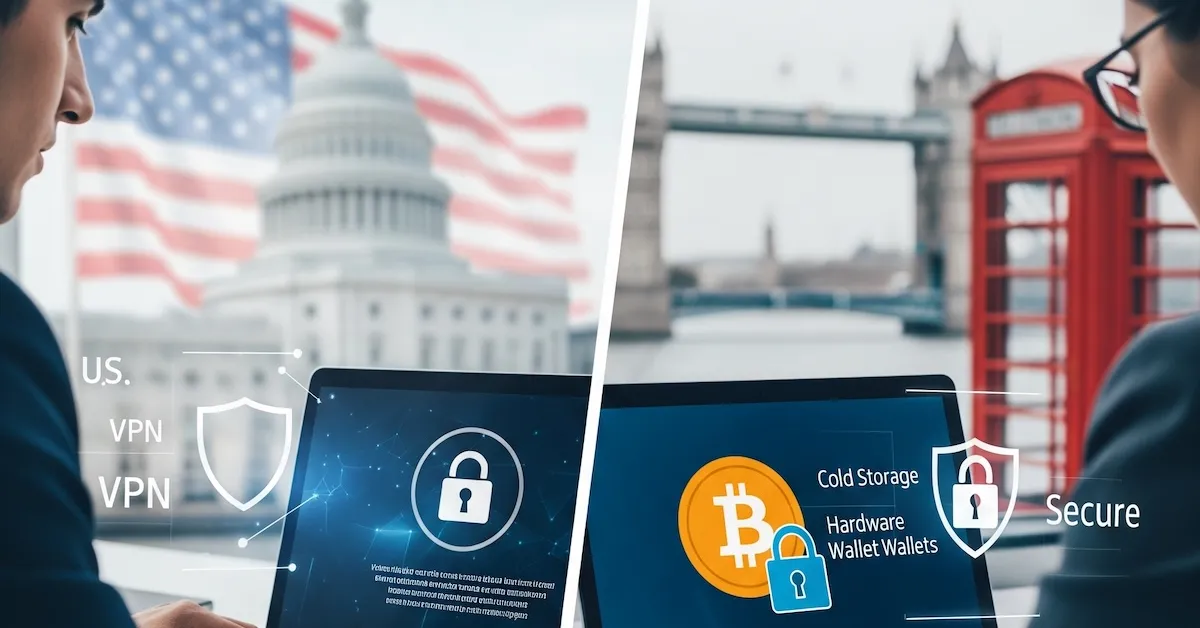15 August 2025
Bitcoin Magazine

Online Privacy Is Under Threat in the UK and US. Policy Expert Freddie New Advises How To Protect Yourself
Due to certain laws and court rulings, it’s becoming more and more difficult to preserve one’s privacy when communicating and transacting online, but there are steps we can take to maintain our privacy, as per what Bitcoin policy advocate Freddie New shared in my recent interview with him.
Before getting to those steps, though, please allow me to offer some background on how online privacy has been negatively impacted in both the UK and US as of late.
July 25 marked the first day of enforcement for the UK’s Online Safety Act, which requires that UK internet users input identifying information before browsing certain websites in efforts to protect children from accessing harmful or age-inappropriate content.
In the US, the founders of Samourai Wallet, a Bitcoin mixing service, recently pled guilty to operating an unlicensed money transmitting business, while a co-founder of Tornado Cash, an Ethereum mixer, was found guilty of the same charge.
Like I said, things have been “pretty shit” (to borrow a phrase from my friends across the pond) for online privacy lately.
But Freddie New says that this isn’t time to despair; instead, he argues, it’s time to take very concrete actions that can help us to maintain our anonymity to a better degree while using the internet.
Ways to Increase Online Privacy
- Use a VPN: VPNs (Virtual Private Networks) allow you to browse the internet from a remote server, masking your IP address and anonymizing your identity in the process. Popular VPNs include Mullvad VPN, Obscura VPN, and Proton VPN. “Downloads of the Proton VPN soared by 1,800% on the day that the [Online Safety] Act became law,” explained New.
- Use a fully-encrypted email service: Email services such as Proton Mail, Mailfence, and Hushmail, encrypt the emails you send so that only you and the recipient of the email you send can read what’s inside. “Thinking about using Proton Mail instead of Gmail,” New suggested in the interview.
- Set up a Nostr key pair: New recommended setting up Nostr key pair (it’s easier than it sounds) via Nostr clients like Primal and Iris, as you don’t have to input any identifying information to get started using Nostr via these clients, which serve as social media platforms and help connect you to the world’s biggest bitcoin circular economy.
- Learn how progressive web apps (PWA) work: A PWA is an app that you can access through a web browser as opposed to through Apple’s App store or the Google Play store. (Think signing into X via a web browser versus using the iPhone app.) New explained that using apps like this helps users to circumvent the “gate kept worlds of the Google Play store or the App Store,” worlds that typically require more identifying information to enter.
- Learn how to use APKs: An APK, or an Android Package Kit, is a file you can use to download an app to your Android device without going through the Google Play store. “Just this weekend, I downloaded the APK for Bitchat,” said New in the interview of the new app that enables you to communicate via your phone more privately.
- Get a bitcoin hardware wallet: Hardware wallets allow users to transact more privately then custodial apps like Relai or CashApp do. “Considering getting a Trezor or COLDCARD,” advised new.
By following the above advice, you can greatly improve your online privacy.
And if it feels overwhelming to do all of the above, start by taking just one or two actions and creating incrementally better privacy for yourself.
As New said in the interview, “No one in the digital age is ever going to have perfect privacy, but you can be slightly better than the next person — improving your privacy even slightly is better than not taking the step at all.”
This post Online Privacy Is Under Threat in the UK and US. Policy Expert Freddie New Advises How To Protect Yourself first appeared on Bitcoin Magazine and is written by Frank Corva.